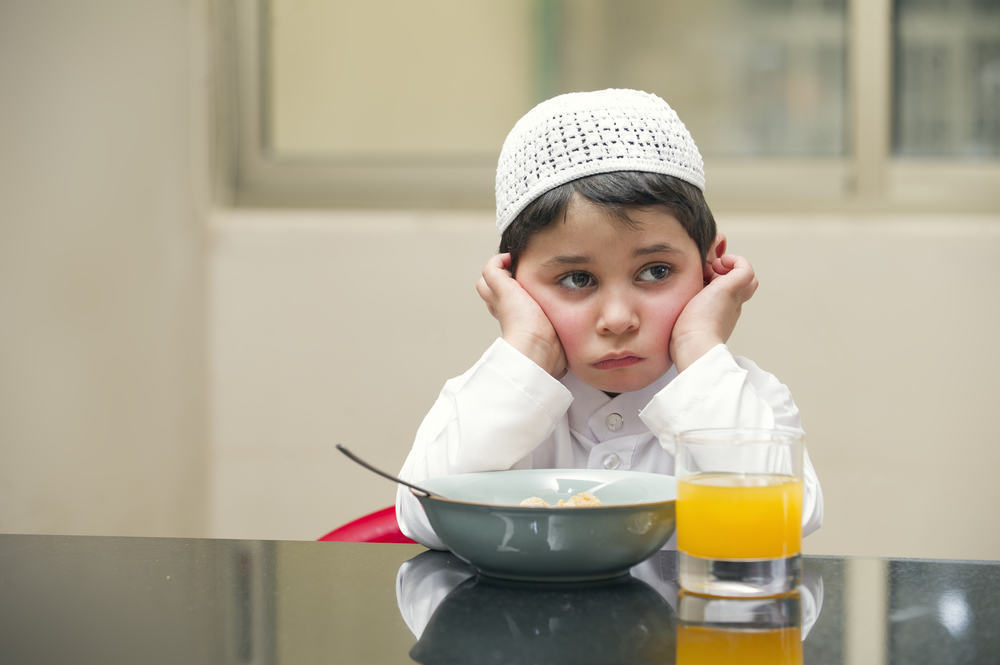Contents:
- Medical Video: Can Kids Do Intermittent Fasting?
- Has my child been able to fast?
- How is fasting safe for children?
- Sign of child dehydration
- Pay attention to the child's sleep
Medical Video: Can Kids Do Intermittent Fasting?
Fasting is an obligation for every Muslim who has gone past or has passed puberty. However, many families have applied fasting for their children from an early age, from applying a half-day fast to a full day's fast. This is done to familiarize children with fasting in the month of Ramadan so that later when they are older the child will be strong to undergo fasting and know the obligation to fast.
However, at what age should the child be allowed to fast? Does fasting done by young children do not affect growth and development? Let's discuss it.
Has my child been able to fast?
To assess your child is able to perform fasting or not, you must know the growth and development of your child now. Does your child have a normal weight or not? How is your child developing, is it the same as the development of his peers?
If your child has normal growth and development, asking your child to practice fasting does not seem to be a problem. However, if your child has a less than standard weight or your child looks thin, you should not force the child to fast. Actually, fasting for children who are not puberty is also not mandatory, but it doesn't hurt to teach children to fast from childhood. The age of the child to be able to start fasting seems to vary depending on the ability of each individual. Consult your doctor before asking the child to fast.
Children really need enough nutrients to support rapid growth and development when compared to adults. At this age, children go through various stages of growth and development. If your child's intake is reduced at this time, it may be that growth and development can be disrupted. Therefore, if the child fasts, try not to reduce the amount of intake that must be given to the child. Children can be taught fasting in stages, starting from half-day fasting to full-day fasting so that children are not surprised to accept changes.
How is fasting safe for children?
Children are at risk of experiencing problems when fasting because of their small body size, large nutritional requirements, and children who are unable to provide food for themselves. Unlike adults, nutrients that enter the child's body are used for growth and development. So, a shortage of nutrients can affect the growth and development of children. In order not to affect the growth and development of children while fasting, you should pay extra attention to the child's food intake.
To meet the nutritional needs of children who are fasting, you should make sure your child receives:
- Foods that contain complex carbohydrates and proteins. Complex carbohydrates help children not get hungry quickly because they release energy slowly. While protein is needed by children for their growth and development. Food for children at dawn should be eggs, cheese, whole wheat bread and vegetables. Do not forget to add fruit and vegetables in the breaking and sahur menu as a source of vitamins and minerals.
- Avoid eating sweet foods at dawn. Foods that contain simple sugars can increase blood sugar levels naturally. This can cause hunger and fatigue quickly because blood sugar levels can drop quickly. However, choose foods that contain simple sugars when breaking fast, such as dates and fruit juice. This simple sugar helps replenish the body's energy reserves after a long time of fasting.
- Drink lots of water. Drinking a lot of water is very necessary during sahur and breaking the fast. Drink enough water to keep your child's body well hydrated, so it doesn't become dehydrated when fasting for a long time.
- Avoid caffeinated drinks. You should give your child water to drink instead of drinks containing caffeine such as coffee, tea, and soda. Caffeine stimulates the body to release more fluid so that the body needs more liquid to replace it.
- Avoid oily and fried foods. Oily and fried foods are harmful to the child's body. A child's stomach is more sensitive than an adult's stomach. Avoiding these foods can prevent children from experiencing abdominal pain and vomiting during fasting.
Sign of child dehydration
Dehydration is a concern for children during fasting. Get to know the signs that your child is dehydrated so you can prevent it. Give your child to drink immediately if the child appears to experience the following signs:
- Tired and lethargic
- Irritable or irritable
- Dry mouth
- Excessive thirst
- Eyes look tired
Pay attention to the child's sleep
Children should sleep during the day because if they spend time during the day playing, it is feared the child will run out of energy and not be strong enough to undergo fasting. At night, make it a habit for children to sleep late at night. Children need sleep for 9-11 hours. During sleep there is growth stimulation in the child because growth hormone is released.












